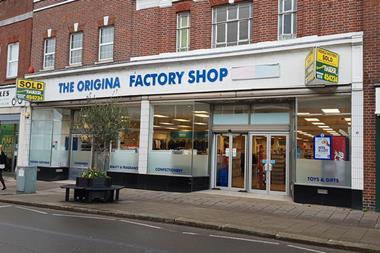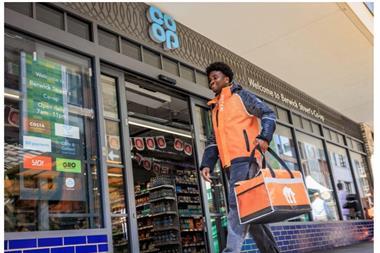
The Association of Convenience Stores has welcomed the publication of the Crime & Policing Bill that looks to defend shopworkers against the rising tide of retail crime.
Measures outlined in the bill, which has been laid in Parliament today (25 February), includes creating a separate offence for assaulting a retail worker and the “effective immunity” for shop theft offences under the value of £200 to be scrapped.
With the bill set to be backed up by the recruitment of 13,000 additional police officers, forces will have increased powers to crack down on repeat antisocial behaviour with new ‘respect orders’ banning prolific offenders from town centres. They will also be able to drug test more suspects on arrest, helping to direct users into treatment.
Police will also no longer need to apply for a warrant to search a premises where stolen goods have been electronically located. The bill is also creating a new criminal offence of possessing a bladed article with the intent to cause harm.
These measures come as police recorded one million incidents of antisocial behaviour in the year ending September 2024. In the same period, they recorded a 23% increase in shop theft offences to over 490,000, which included 55,000 involving a knife or sharp instrument.
Figures from the 2024 ACS Crime Report show that in the convenience sector alone, retailers recorded 5.6 million incidents of shop theft, highlighting a significant disconnect between the number of crimes that take place and the number that end up being recorded by the police, the trade body said.
“We strongly welcome the introduction of the Crime & Policing Bill, which we hope will send a clear message that shop theft and assaults on retailers will be taken seriously by both the police and the justice system,” said ACS CEO James Lowman.
“People running and working in shops deserve to be treated with respect, and we believe this bill takes important steps toward that goal.”
Home secretary Yvette Cooper said: “This flagship Crime & Policing Bill is at the heart of our mission for safer streets and this government’s Plan for Change. For too long communities have had to put up with rising town centre and street crime, and persistent antisocial behaviour, while neighbourhood police have been cut.
“And for years too little has been done to tackle the most serious violence of all including knife crime and violence against women and children. That is why the new Crime & Policing Bill is about taking back our streets and town centres, restoring respect for law and order, and giving the police and local communities the support and tools they need to tackle local crime.”
The FWD has called on government to extend the pending legislation that makes assaulting a retail worker a standalone offence across the wholesale sector.
“FWD appreciates the introduction of the stand-alone offence aimed at addressing the rising rate of retail crime, and recognises and appreciates the inclusion of wholesale premises that also sell directly to the public,” said FWD head of external affairs Lyndsey Cambridge.
“However, the food and drink retail wholesale sector serves retail stores on a business to business basis and very few welcome members of the public. Their operational model focuses on issuing retail memberships in order to stock up in a cash and carry.
”As it stands, the current definition would leave retailers vulnerable when visiting wholesale cash and carries, when they are carrying out usual business activities outside of their primary retail premise. Car park crime is prolific in a wholesale setting, with the victims being retailers as they stock their vans or cars after replenishment.
“Additionally wholesale workers, like retail workers, are vulnerable to criminals targeting cash and carries which often results in abuse and violent attacks.
”Furthermore, we are concerned with crime displacement, where criminal activities persistently target the weakest links in the supply chain. Retail crime spans across various supply chain stages, and we must avoid creating vulnerable points that could attract organised criminal groups.”



















No comments yet